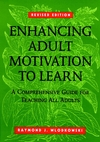
How many excellent Sunday School class sessions have you experienced? Were they really excellent learning encounters? What makes an effective learning group? Is it simply that you enjoyed it? Or is it more? Is it that you learned something? Or is it even more than that? Is it that every person present was fully engaged in the experience? Perhaps we are getting closer.
What are the essential characteristics of effective Sunday School classes? Marty Canaday wrote an interesting post on the G.R.A.C.E. Writes blog entitled Characteristics of Effective Learning Groups. In the article, he contends that learning takes time and that an hour is inadequate. Canaday says this is because an effective learning experience would include “an adequate time frame that supports the need for dialogue and critical reflection.”
Do we really want attenders to get it if we rush the learning experience and give them no time to think about what is taught? I find few classes that take the time needed for the group to really think about and chew verbally on what they are learning. Too many teachers try to teach too much leading to little or no learning.
In the article, Canaday shares six essential characteristics for learning in small groups from Wlodkowski’s book, Enhancing Adult Motivation to Learn. The book’s six essential characteristics are listed in all capitals followed by my commentary applying them to the setting of Sunday School:
-
A PEOPLE-CENTERED LEARNING ENVIRONMENT, ONE THAT IS CARING, WARM, INFORMAL, AND RESPECTFUL OF EACH INDIVIDUAL. Great learning experiences can take place even among group members that have never met before. But a class can be hamstrung by one individual who is not caring and respectful. This is a choice. This can be laid out as ground rules in the early moments of a new group.
-
A HIGH LEVEL OF TRUST, WHERE PEOPLE ARE OPEN TO SHARING INFORMATION, IDEAS, THOUGHTS, FEELINGS, AND REACTIONS TO THE ISSUES BEING ADDRESSED. Trust happens when a group has been together for a while and been transparent with each other. In trusting relationships, conversation is able to go more deeply. Application is able to be suggested because the group knows each other. The group must be willing to risk with each other.
-
AN EASE OF COMMUNICATION, WITH PEOPLE LISTENING TO ONE ANOTHER AND BEING RESPONSIBLE FOR DIALOGUE. Listening is key to an effective class experience. Understanding comes from listening and leads to an ability to respond to real issues, concerns, and feelings. Then the dialogue makes sense.
-
A COLLABORATIVE ATMOSPHERE IN WHICH COOPERATION OVERRIDES COMPETIVENESS AS A GROUP VALUE. The effective learning experience is one in which the class is attempting to build on what they understand/know. This is best done together. The group slows down and helps those who don’t get it. The value is in everyone in the class reaching the finish line of learning.
-
AN ACCEPTANCE OF PERSONAL RESPONSIBILITY, WITH PEOPLE HOLDING THEMSELVES ACCOUNTABLE FOR THEIR CHOICES AND BEHAVIOR. The class does not need a “sargeant-at-arms” to enforce a code of conduct. The class may have a covenant that has been signed by all members, but it is individually policed. They treat each other with respect, apologize when they are out of line, and act well by personal choice.
-
CLEAR AND ACCEPTED LEARNING GOALS, WHERE MEMBERS OF THE GROUP UNDERSTAND AND VALUE THE GOALS OF THE MEETINGS. The class understands the goal of working past knowledge to understanding and past understanding to application. The group works together to help each other learn to obey what Jesus has commanded (Matthew 28:20). They expect to ask questions. They expect to be given time to think and to respond. They expect to be held accountable. They expect to learn and enjoy learning.
Measure your Sunday School class. Think about your last class session. Were all of Wlodkowski’s elements of effective learning experiences present in your class? Which was the weakest link? What can you do to strengthen that element? Don’t just go through the motions of teaching. Lead them to learn. Be revolutionary!
Leave a Reply